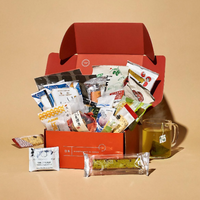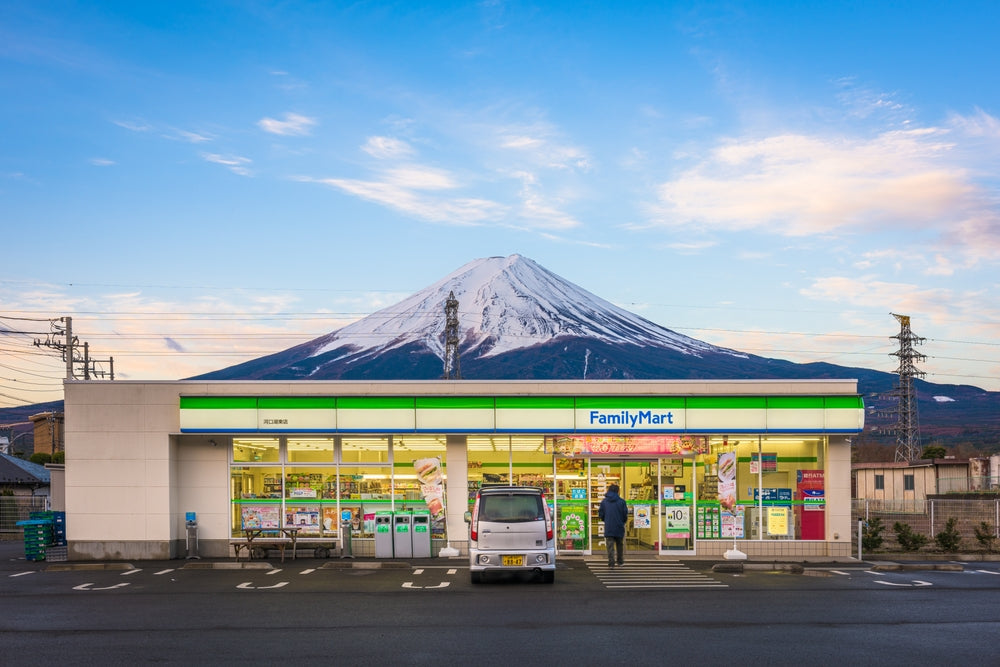Planning Your Budget: The Complete Cost Guide for Traveling to Japan
Introduction to Travel Costs in Japan

Japan beckons with its wealth of historical landmarks, world-class theme parks, and delightful local cuisine, all wrapped in exceptional hospitality, making it a dream destination for many. As you plan for your trip to Japan, it's essential to budget your Japan travel costs in advance. Estimate your travel expenses upfront, covering accommodation, transportation, and dining choices, to match your travel style.
Understanding Japan's Cost of Living

While Japan is often labeled as an expensive country, an understanding of the varying costs between rural areas and major cities like Tokyo and Osaka can help you manage your travel budge effectively.
For example, in Tokyo, Japan's bustling capital, accommodation costs in districts can be daunting, with hotel rooms and rental apartments commanding premium rates. Dining options range from affordable ramen shops to luxurious sushi restaurants, catering to various budgets but leaning towards the higher end in popular areas. In the Kansai region, cities like Osaka provide a more economical alternative to Tokyo, with accommodations and dining choices generally more budget-friendly compared to their counterparts in the east.
Meanwhile, visiting Japan's rural areas reveals a contrasting scene. Regions such as Hokkaido, Japan's northernmost island, or remote areas like Okinawa offer serene landscapes, rich Japanese culture, and memorable experiences at a fraction of the cost compared to major cities. Accommodations are typically more affordable, and local dining features regional delicacies that are budget-friendly. While transportation costs may increase due to limited public transit options, local train tickets are relatively inexpensive as well.
Airfare Costs to Japan

One of the major expenses affecting your trip to Japan cost is the price of flights, which can vary depending on the departure location and destination within Japan. In addition to location, the timing of travel can significantly impact flight prices. Generally, peak tourist seasons, such as cherry blossom season in spring, attract visitors from around the globe, leading to higher airfare due to increased demand. Usually, the cheapest time to visit Japan falls between January to March.
It is advisable to book flights to Japan about 6-8 weeks in advance to secure the best deals, as fares typically increase closer to the departure date. Watch for airline promotions and sales, and compare prices across different airlines to find the lowest fares on a round-trip ticket. Additionally consider the benefits of travel insurance when booking your flight. For an additional fee, travel insurance can offer peace of mind by covering unexpected events like trip cancellations, medical emergencies, or lost baggage.
Accommodation Options and Costs

When planning a trip to Japan, selecting the right accommodation can greatly influence both your experience and budget. Fortunately, Japan presents a wide range of options, from budget-friendly hostels and luxury hotels to modern Airbnb listings and traditional ryokans, catering to every preference and budget.
Hostels are one of the most affordable choices in Japan. They provide dormitory-style accommodations with shared facilities, making them ideal for solo budget-conscious travelers or backpackers. Prices usually range from ¥2,000 to ¥5,000, depending on the location and amenities. Some hostels also offer private rooms at slightly higher rates. In contrast, Airbnb has become increasingly popular, particularly for those planning an extended stay in Japan. Airbnb accommodations range from rooms starting at around ¥3,000 per night to entire apartments costing between ¥10,000 and ¥20,000 per night.
Japan also offers a diverse array of hotels, ranging from luxurious chains to budget-friendly options. Prices for a hotel room in 5-star hotels typically starts at ¥20,000 per night. These hotels boast premium amenities, impeccable service, and convenient proximity to major attractions and train stations. For travelers seeking comfort without excessive spending, mid-range hotels, business hotels, or local chains offer essential amenities and comfortable accommodations. Capsule hotels have also gained popularity as a minimalist yet efficient lodging option, favored by those seeking a simple place to sleep.

Lastly, for travelers looking to immerse themselves in Japanese culture and are willing to splurge a bit, a ryokan or traditional Japanese inn, offers the ultimate experience. They feature tatami mat floors, futon beds, and communal baths. Prices vary significantly based on location and level of luxury. Budget ryokans typically start at around ¥8,000 per night, while luxury options can exceed ¥50,000 per night. Meals are usually included in the price and often feature kaiseki, or traditional Japanese multi-course dinners.
No matter the type of lodging, early booking is important, particularly during peak seasons. Compare booking websites to find competitive prices and be sure to read reviews regarding cleanliness and service quality. When selecting accommodation, it's advisable to consider staying slightly outside major tourist areas to save money while still being within walking distance of public transportation. Finally, check the cancellation policy to avoid penalties in case travel plans unexpectedly change.
Daily Budget for Meals and Dining

In Japan, there's no shortage for dining choices that allow anyone to enjoy Japanese cuisine regardless of their budget. For budget-conscious travelers, street food is an excellent choice, commonly found at festivals, markets, and bustling street corners. It offers authentic Japanese food like takoyaki and yakisoba at wallet-friendly prices. Japanese convenience stores such as 7-Eleven, Lawson, and FamilyMart are also great options, providing a range of delicious and cheap meals on the go, including onigiri and bento boxes, alongside a variety of beverages and desserts.
For those seeking a comfortable dining experience, Japan's fast food chains provide a range of affordable options that are quick and satisfying. Popular choices include Yoshinoya, Mos Burger, and kaitenzushi (conveyor belt sushi) restaurants, which offer affordable sushi per plate. Family restaurants like Saizeriya, Gusto, and Joyful are also great options, offering diverse menus that combine Japanese food with basic Western-style meals at reasonable prices. These budget restaurants have locations throughout Japan's cities.
Lastly, for those willing to spend a bit more, Japan's dining scene includes high-end and Michelin-starred restaurants that deliver exceptional culinary experiences crafted from premium ingredients. From upscale sushi bars and wagyu restaurants to establishments serving traditional kaiseki courses, these options, while pricier, provide a chance to experience the full spectrum of Japanese cuisine and culture.
Transportation Expenses Within Japan

Traveling between cities and the countryside in Japan is convenient, thanks to its excellent public transportation system. The Japan Rail Pass, also known as the JR Pass, is highly recommended for international travelers as a cost-effective option to explore multiple cities and regions. The pass offers unlimited access to JR-operated trains, including the famous shinkansen (bullet train), as well as JR-operated buses and ferries, for a set period.
Alternatively, subways and buses are convenient travel options. Japan's major cities, such as Tokyo, Osaka, and Kyoto, have extensive and efficient subway systems, connecting major districts, tourist attractions, and business areas. Buses are particularly useful in areas not served by trains or subways. Additionally, mobile apps and websites such as HyperDia and NAVITIME Transit assist users in finding the most efficient routes for their jouneys.
Sightseeing and Attraction Costs

Japan entices millions of tourists annually with its ancient temples, tranquil gardens, and world-class museums. Most museums in Japan charge entrance fees; for instance, the Tokyo National Museum, the country's oldest and largest, charges ¥1,000, while the Kyoto National Museum, showcasing Kyoto's artistic legacy, charges ¥700 for admission. For those eager to explore Japan's tourist attractions without spending, many iconic sites offer free admission, while others typically charge ¥300 to ¥700. Sensoji Temple in Asakusa, Tokyo, Japan's oldest temple known for its giant red lantern and Nakamise shopping street, is free to enter. As for parks, most are free, such as Kyoto's Arashiyama Bamboo Grove and Nara's deer park.
Besides temples and parks, Japan offers a plethora of experiences that delve into its culture, history, and natural beauty without costing a yen. Throughout the year, Japan hosts numerous free cultural festivals where visitors can enjoy local culture and experience community spirit. Exploring Japan's lively markets and street scenes, like Tokyo's Tsukiji Market and Osaka's Dotonbori district, offers a chance to sample delicious local delicacies. Meanwhile, historic district like Kyoto's Higashiyama District and Kawagoe's "Little Edo" provide opportunities to delve into Japan's cultural past, all without an entrance fee.
Shopping and Souvenirs

Certainly, a Japan trip is incomplete without taking home a memento. Fortunately, Japan is a shopping haven with a wide variety of products and souvenirs, from traditional items to pop culture merchandise, skincare products, and regional snacks. Here are three top spots to shop and find souvenirs at great prices:
-
Shopping Streets and Tourist Spots: Visitors need not search far for shopping souvenirs as most tourist spots in Japan offer traditional crafts, culinary delights, and unique keepsakes to take home. These items range from small souvenirs like keychains, temple charms, and small ceramics priced between ¥300 and ¥1,000, to high-quality pottery, tea sets, and Japanese dolls typically starting at ¥3,000 and above. Regional delicacies packaged in gift boxes, such as matcha (green tea) products and the famous Tokyo Banana, are also available starting from ¥500.
-
Don Quijote: Or fondly known as "Donki", is a popular chain of discount stores known for its vast array of products. From character-themed merchandise and trendy cosmetics to electronics and unique snacks, the store boasts an extensive selection that caters to every need. Moreover, numerous Don Quijote outlets participate in Japan's tax-free shopping program, offering international visitors savings on purchases above a specified amount.
-
Dollar Stores: Dollar stores like Daiso and Seria, are one of the most budget-friendly places to shop in Japan. These stores offer a wide range of affordable goods, from stationery and kitchenware to beauty products, snacks, toys, and household items, all priced at ¥100 per item.
Additional Costs: Tours and Experiences

Visiting Japan can be challenging, especially with the language barrier. While cities like Tokyo and Kyoto are becoming more tourist-friendly with English signages, many places still primarily use Japanese. Guided tours can ease communication issues and handle logistics such as transportation and scheduling, letting you enjoy your trip without the hassle. Here are two types of guided tour and their typical costs:
-
City Walking Tours: These tours often specialize in specific neighborhoods, historical sites, or culinary experiences. Prices typically range from ¥3,000 to ¥8,000 per person, depending on the tour's duration and complexity.
-
Historical and Cultural Tours: These specialized tours focus on exploring historical and cultural landmarks such as temples, shrines, and castles in specific cities. For instance, a Kyoto Day Tour includes visits to famous landmarks like Fushimi Inari Taisha and Kiyomizudera for a full day. Costs for these tours generally begin at ¥10,000 per person and can vary based on the included attractions. Some tours may cover only the guide and transportation, excluding meals, drinks, and entrance fees.
In addition to guided tours, Japan has a multitude of cultural experiences and adventurous activities available for visitors seeking to discover its rich heritage and breathtaking landscapes. One popular cultural activity is the traditional Japanese tea ceremony, often hosted in historical tea houses, providing a glimpse into the country's refined tea customs. Prices generally range from ¥3,000 to ¥5,000 per person. Adventure activities, on the other hand, tend to be more expensive. For instance, a day pass for skiing or snowboarding typically ranges from ¥4,000 to ¥8,000, with additional costs of ¥3,000 to ¥5,000 for equipment rental.
Tips for Budgeting a Trip to Japan

Exploring Japan can be an unforgettable experience, but it's crucial to plan your travel budget effectively to maximize your trip without hurting your wallet. Here are some practical tips on saving money during your visit:
-
Before your trip, make a list of must-see sites and activities, and estimate their costs. Take advantage of free attractions and activities to make the most of your visit.
-
Book your accommodation, transportation and attractions in advance as they can be significantly cheaper ahead of time.
-
When selecting accommodation, opt for a place with a kitchenette so you can prepare your own food and save on meal expenses.
-
Allocate a daily budget for categories like food, transportation, attractions, and shopping to track your expenses and stick to your financial plan.
-
Always carry your passport when shopping in Japan to take advantage of the country’s tax-free shopping opportunities, widely available for tourists at many stores.
Luxury vs Budget Travel in Japan

Luxury travel in Japan is all about comfort, exclusivity, and premium experiences. This includes indulging in opulent accommodations with breathtaking views, dining at renowned Michelin-starred restaurants, and participating in bespoke guided tours and exclusive activities that cater to discerning travelers seeking the utmost in luxury and sophistication.
On the other end of the travel spectrum, traveling on a very tight budget requires maximizing affordable accommodations, local cuisine, and public transportation. While budget accommodations may offer smaller rooms and basic amenities, they are typically clean, safe, and conveniently situated. Choosing local restaurants or convenience store meals, coupled with taking advantage of numerous free attractions and cultural events throughout Japan, ensures your trip remains memorable without straining your wallet.
Calculating Your Total Trip Cost to Japan

So, how much does a trip to Japan cost? Well, it varies, but here's a detailed framework to help you estimate the total expenses and get an idea:
-
Flight: International flights to Japan typically range from $500 to $1,500, depending on your departure location, airline and booking timing.
-
Accommodation: Budget options start from ¥2,000 per night while luxury hotels can begin from ¥30,000 per night. Multiply the nightly rate by the number of days you plan to stay to estimate your total accommodation cost.
-
Food: Plan to spend between ¥1,500 to ¥5,000 per day on meals, depending on your dining preferences.
-
Transportation: A 7-day JR Pass costs approximately ¥50,000 for adults, providing unlimited travel on JR trains. Local trains and subways typically range from ¥200 to ¥600 per trip.
-
Attractions and Activities: Budget ¥1,000 to ¥3,000 per day for attractions and activities. Costs can increase if you plan to visit amusement parks or other special venues.
-
Shopping: Set a specific amount for shopping to manage your expenses.
-
Unexpected expenses: Allocate 10-20% of your total budget for unexpected expenses that may arise from medical emergencies, travel delays, or unplanned activities.
When planning your travel budget, don't forget to monitor the exchange rate between your home currency and the Japanese Yen. It's recommended to exchange currency before your trip and utilize ATMs in Japan for more favorable rates instead of local exchange services.
Conclusion:

The Land of the Rising Sun is a dream destination within reach for many through effective budget planning. By thoughtfully exploring your choices and setting practical budgets, everyone can fully immerse themselves in its cultural wonders and scenic marvels without financial worry, ensuring your journey is brimming with unforgettable memories.
Discovering Japan on a budget has never been more delightful with a Bokksu Snack Box Subscription, bringing the flavors of Japan right to your door. Subscribe now!

Author Bio




















